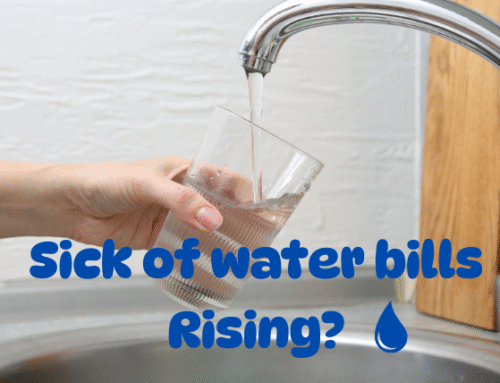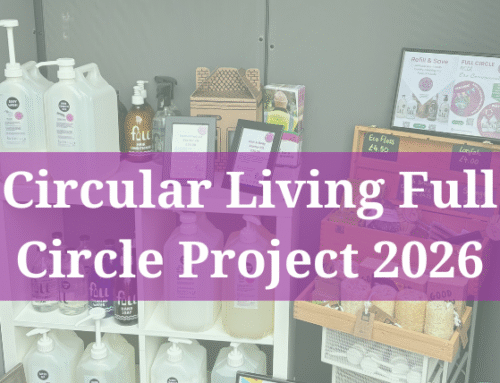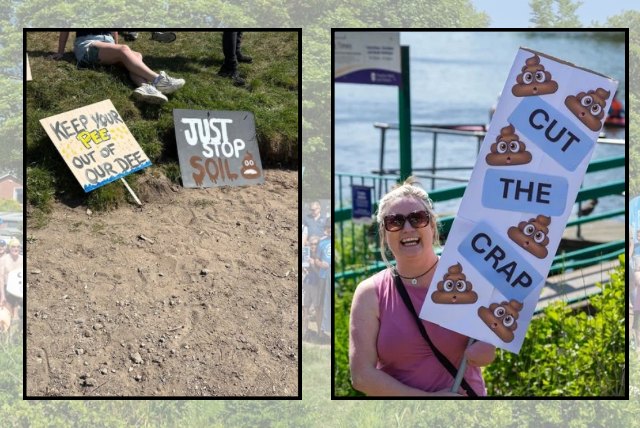
Helen Tandy, Founding Director, Eco Communities
The River Dee is more than just a picturesque feature of Chester’s historic landscape; it plays a vital role in the economic, environmental, and social life of the city and its surrounding areas. From my childhood trips to Chester to my recent involvement with the Clean Dee campaign, I have witnessed firsthand the significance of this river to our community. However, despite its beauty and importance, the River Dee faces serious pollution challenges that threaten its future. In this blog, we will explore the river’s impact on Chester, the ongoing efforts to protect it, and how you can contribute to preserving this invaluable natural resource.
Around 30 years ago, I was on a six-month secondment at Nationwide Building Society’s head office in Swindon. I started at Nationwide straight from college, and at the time I was working as a Financial Adviser. As my secondment came to an end, a promotion was advertised for a Financial Consultant in Chester. It was my childhood trips to Chester and walks along the River Dee with my parents that inspired me to apply. Although I now work back in Greater Manchester, Chester has become my home, and I can’t imagine living anywhere else.
As a Rep for Surfers Against Sewage, I’ve been campaigning against single-use plastic since 2018, but until recently I hadn’t really engaged in the sewage pollution campaign. That changed when I came across the Clean Dee campaign and updates on potential legislation changes around bathing water status, this made me want to get more involved in protecting our river.
Why is the River Dee so important to Chester?
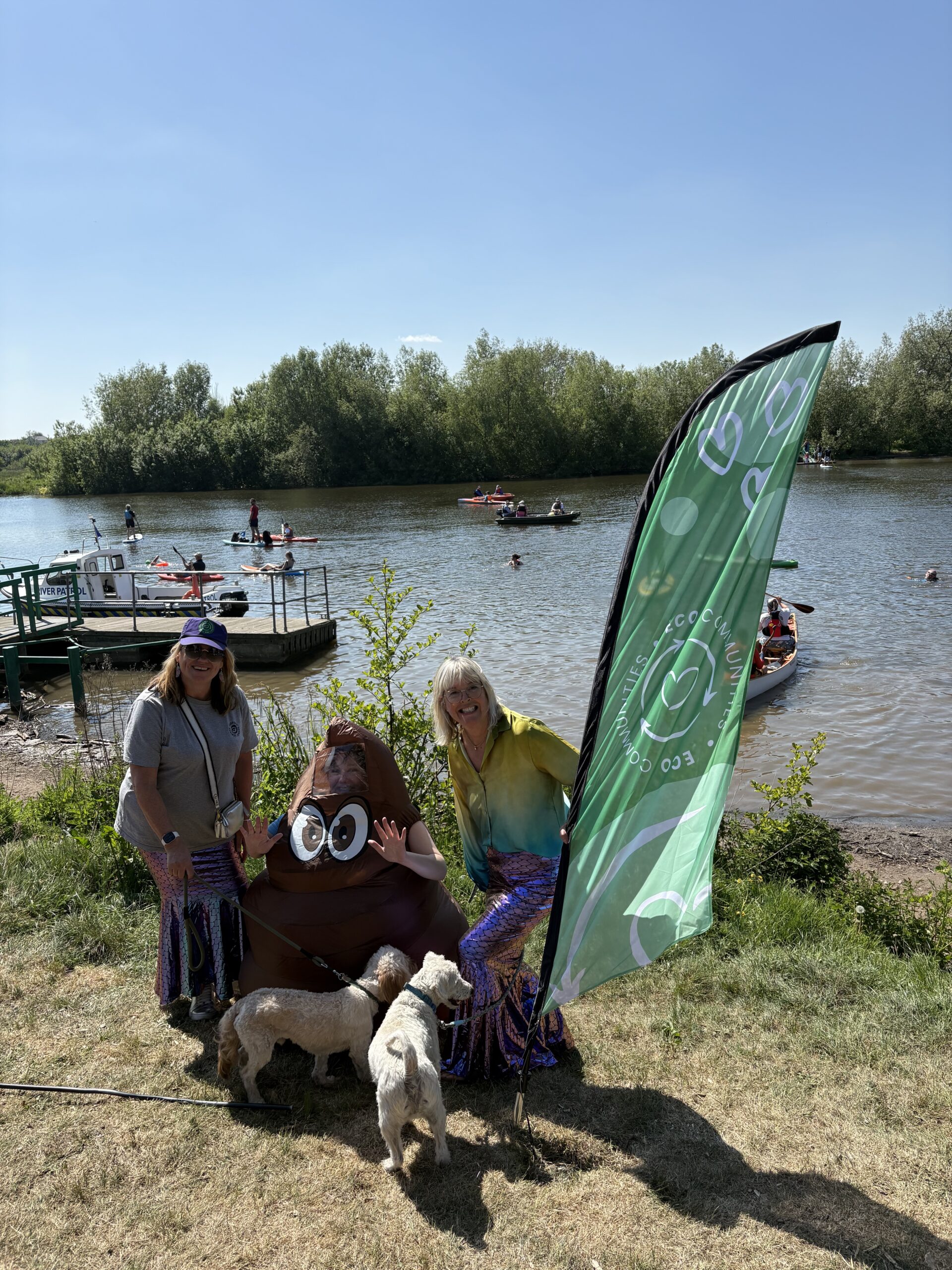
The Eco Communities team at The Paddle out Protest left to right, Helen Tandy, Alison Knott and Jane Harrod-Roberts
The River Dee is a major draw for visitors and plays a key role in supporting Chester’s vibrant tourism sector. Boating, kayaking, paddleboarding, riverside walks, and events along The Groves attract thousands each year, boosting local businesses, cafes, pubs, and accommodation providers. Last weekend was The Chester Regatta which is one of the oldest rowing events in the world, with roots dating back to at least 1733. My friend’s daughter Isabella was competing on both Saturday and Sunday. Held annually on the River Dee, it has long been a highlight of the city’s sporting calendar, attracting rowers from across the UK. I had a stall with The Welsh Dee Trust at the event a couple of years ago and it was a buzzing busy day full of families. Events like this can’t be impacted by pollution.
As a child, visiting Chester and the River Dee was a regular Bank Holiday tradition, duck feeding (probably bread, we didn’t know it was bad then) a good hour’s drive, but always worth it.
Water-based businesses and tour operators rely on a clean, thriving river. A healthy river ecosystem enhances the area’s appeal for leisure activities and directly supports jobs and local revenue.
Despite its beauty and importance, the River Dee faces serious pollution challenges. In 2023 alone, sewage was discharged into the river over 1,500 times, totalling more than 8,000 hours. These discharges, primarily from storm overflows during heavy rainfall, release untreated sewage directly into the water. This not only threatens local wildlife, including the rare Yellow Sally Stonefly, but also poses a public health risk to swimmers, paddlers, and other river users.
Why Bathing Water Status Matters
Bathing water status would be a game changer. It would mean regular water quality monitoring by the Environment Agency and a legal obligation to reduce pollution. It would also give communities a tool to hold water companies and regulators accountable.
Cheshire West and Chester Council submitted an application in October 2023 for Sandy Lane on the River Dee to be designated a bathing water site. However, it was not approved due to changes that required over 100 regular bathers, a more achievable number on beaches than on riverbanks.
But change is coming.
New Hope for the Dee in 2025
From May 2025, the rules are changing. The requirement will shift from 100 bathers to 100 water users, including paddlers, kayakers, rowers, wild swimmers, and more. This makes achieving bathing water status for the Dee far more realistic and inclusive.
To prepare for this, we need to monitor river usage for at least one full bathing season (May–September 2025). Ideally, we’d collect two seasons of data to demonstrate year-on-year engagement. So, this is not a sprint — it’s a steady campaign, and we need your help.
Pollution is Already Disrupting Sport
The impact of river pollution is already being felt across the UK. In 2024, the 1066 Triathlon and the Hever Castle Triathlon had to cancel their swim sections due to pollution, turning both events into duathlons. At the 2023 World Triathlon in Sunderland, 57 athletes fell ill after E. coli levels were found to be 39 times higher than normal.
Closer to home, canoeing sessions on the River Dee have been cancelled, and triathlon swim legs rely on careful timing to avoid contamination. Informal events like the Chester Raft Race continue but often spark public concern about water quality.
Community Momentum is Building
Having found River Dee user Adam through his registration for the recent Paddle our Protect, I worked with him and Diane and Barry from the
Clean Dee Ca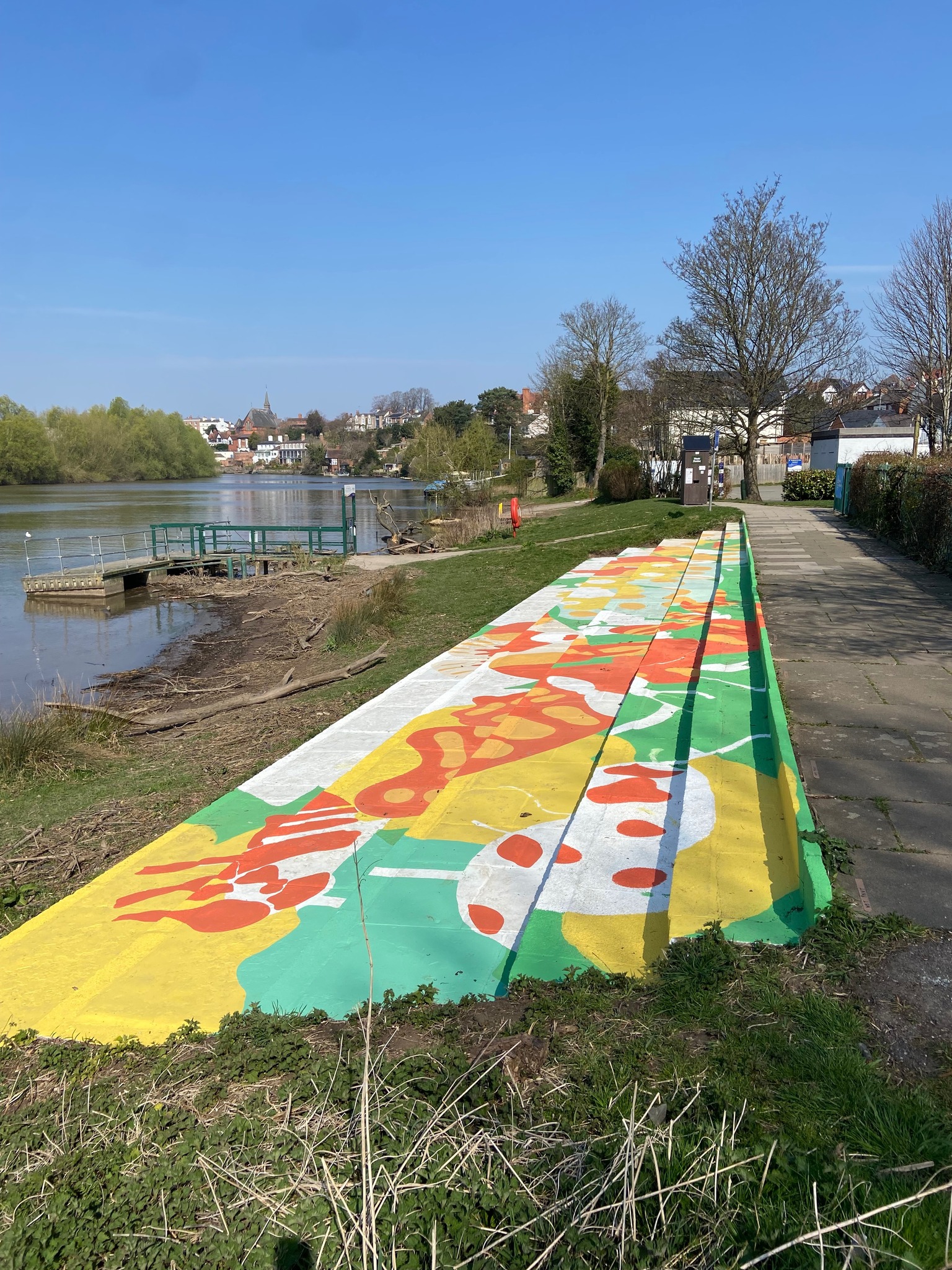 mpaign to promote the activity and we were blown away by the turnout.
mpaign to promote the activity and we were blown away by the turnout.
It was fantastic to visit the Sandy Lane site and see the great work the Friends of Sandy Lane have been up to, regenerating the area. The community volunteers have cleared the viewing steps and pathways, planted bulbs and raising funds for a fantastic mural on the steps.
As part of Chester Green Weekend I organised a screening of “Rave On for the Avon,” a film about how the River Avon in Bristol brought a community together. We packed the Picturehouse Cinema and held a lively Q&A in the bar afterwards. It was fantastic to see such a cross-section of river lovers: rowers, triathletes, wild swimmers, and more. Some had even suffered the health effects of swallowing polluted water.
📊 How You Can Help the River Dee Campaign

Adam and his daughter at the Paddle out Protest
The River Dee belongs to all of us, and we need your help to secure official bathing water status and protect it for generations to come.
🌊 Join us: Be part of upcoming paddle cleanups, awareness events, and wild swim sessions.
📸 Show your support: Take a photo by the river or on the water, and tag @ecocommunities_ using #CleanDee.
📊 Help us count: We’re gathering data on river use — if you’re a swimmer, paddler, rower, or even just dipping your toes, please log your activity!
🗣️ Speak up: Email your local councillor or MP. Tell them why the River Dee matters and why bathing water status is vital.
🤝 Volunteer: Whether you’re good at social media, organising events, or just passionate about clean water — we need you on the team.
🔗 Stay in the loop: Follow us @ecocommunities_ and drop us a message if you’d like to help with planning or events. Sign up to the Eco Communities River Dee Campaign Newsletter – CLICK HERE
Together, we can make the River Dee safe, clean, and celebrated once again.


